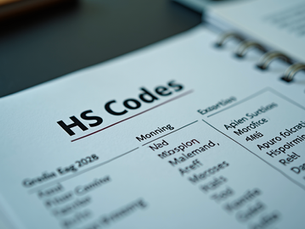
Customs Valuation & Transfer Pricing
Customs valuation is the process of determining the value of imported goods for the purpose of assessing customs duties and other ad-valorem taxes levied on goods entering a national border. The legal framework for customs valuation is the World Trade Organization (WTO) Valuation Agreement (Customs Valuation Agreement - formally, "Agreement on Implementation of Article VII of the General Agreement on Tariffs and Trade of 1994), which establishes a fair, uniform, and neutral system for determining customs value based on actual transaction value. Given its transnational nature and the impact it may have on international trade, customs valuation is a process which is regarded by a variety of international trade agreements that were promoted over the last 30 years by the WTO with the intent of making customs valuation as homogeneous as possible across all the participants to the WTO.
Transfer pricing refers to the pricing of goods, services, or intellectual property transferred between related entities, often across international borders. This is primarily governed by OECD Transfer Pricing Guidelines and is used for income tax purposes to ensure arm’s length pricing in cross-border transactions.
Though customs valuation and transfer pricing may appear to be the same taxing principle, they serve two different purposes and, therefore, have some subtle but notable differences. Customs valuation applies to imported goods, whereas transfer pricing applies only to related-party transactions (i.e., carried out by members of the sam multinational group of enterprises) that do not necessarily involve goods. Furthermore, the customs valuation methods do not precisely overlap with those used in transfer pricing analyses for income tax purposes.
Customs Valuation of Imported Goods
As a customs valuation specialist, I assist businesses in accurately determining the customs value of imported goods in compliance with WTO regulations and national customs laws. My expertise ensures that transaction values align with international trade rules while optimizing duty costs and minimizing compliance risks. I also advise on the intersection of customs valuation and transfer pricing, helping companies navigate related-party transactions, post-import adjustments, and customs audits. With a strong understanding of trade regulations and valuation methodologies, I provide strategic solutions that enhance compliance and operational efficiency in global trade.
Customs Procedures
My Customs advisory services are based on the WTO Trade Facilitation Agreement (TFA) and help businesses streamline their import and export procedures, ensuring compliance with international trade regulations while reducing costs and delays. These services include guidance on customs valuation, classification, and duty optimization, as well as assistance with electronic documentation, advance rulings, and risk management strategies. As a customs advisor I also support businesses in navigating authorized economic operator (AEO) programs, simplified procedures for small and medium enterprises (SMEs), and dispute resolution mechanisms with customs authorities. By leveraging TFA provisions, such as pre-arrival processing and expedited release, my customs advisory services enhance supply chain efficiency, mitigate compliance risks, and improve cross-border trade operations.
Temporary Admission of Goods
Temporary admission allows businesses to import goods for trade fairs, exhibitions, or similar events without paying customs duties or taxes, provided the goods are re-exported within a specified period. This facilitates international trade by reducing financial burdens on exhibitors while ensuring compliance with customs regulations.
Unlike customs valuation and customs procedures, there is no global harmonization concerning international rules for temporary admission of goods. There two key international legal instruments that currently support temporarry admission of goods:
-
The Customs Convention of the ATA Carnet for the Temporary Admission of Goods of December 6, 1961
-
The Istanbul Convention of June 26, 1990
While the Customs Convention of the ATA Carnet for the Temporary Admission of Goods only deals with goods entering borders for trade fairs and exhibitions, the Istanbul Convention also encompasses (besides goods for trade fairs and exhibitions) professional equipment, temporary importation of commercial and private vehicles, aircrafts, leisure boats, etc.
Depending on the country where your business is established and the the country in which you are seeking to obtain temporary admission, one of the two international legal instruments will generally apply.
Our customs advisory services will help you obtain the appropriate ATA carnet and/or temporary admission documentation. By leveraging temporary admission procedures, companies can participate in global exhibitions efficiently while avoiding unnecessary customs costs and delays.
Customs Advisory
Customs Representation in The Netherlands (EU)
In the European Union, customs import declarations are mandatory for all goods entering from non-EU countries and serve as the legal basis for placing goods under a customs procedure, such as release for free circulation. These declarations must be submitted electronically via the national customs systems (e.g., DMS in the Netherlands) and must include detailed information about the goods, such as their HS code, customs value, origin, and applicable duties or VAT. Accurate declarations ensure compliance with EU customs regulations and facilitate the smooth clearance of goods at the border. Importers may submit these declarations directly if established in the EU or may appoint a customs representative—often under indirect representation—to act on their behalf, particularly if they are not based within the Union. Properly filed import declarations are essential for accessing EU markets, benefiting from preferential trade agreements, and avoiding costly delays or penalties.
Appointing a customs representative in the Netherlands offers international exporters a strategic gateway into the European Union, enabling fast and compliant access to the EU market through one of its most advanced logistics hubs. By using indirect customs representation, non-EU exporters can clear goods into the EU without needing a local establishment or their own EORI number. Additionally, indirect representation allows access to simplified customs procedures, preferential tariff regimes, and bonded warehousing, making the Netherlands an ideal base for efficient and tax-optimized EU distribution.
Do not miss my business insights on international trade for more information on my customs advisory services.
Are you seeking assistance for your international business journey?





